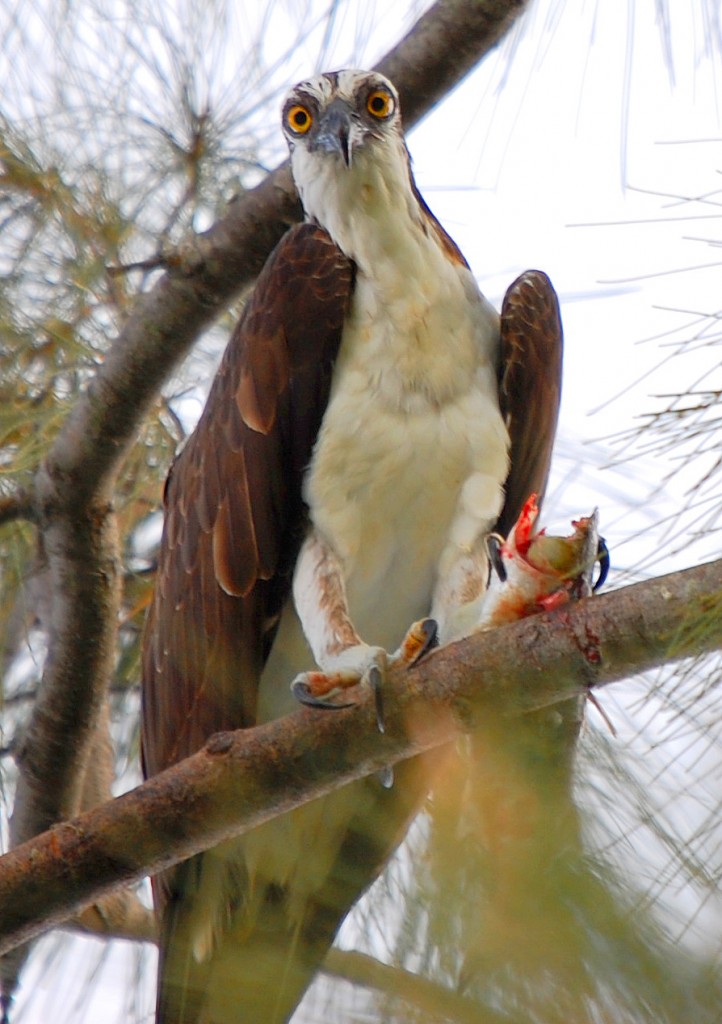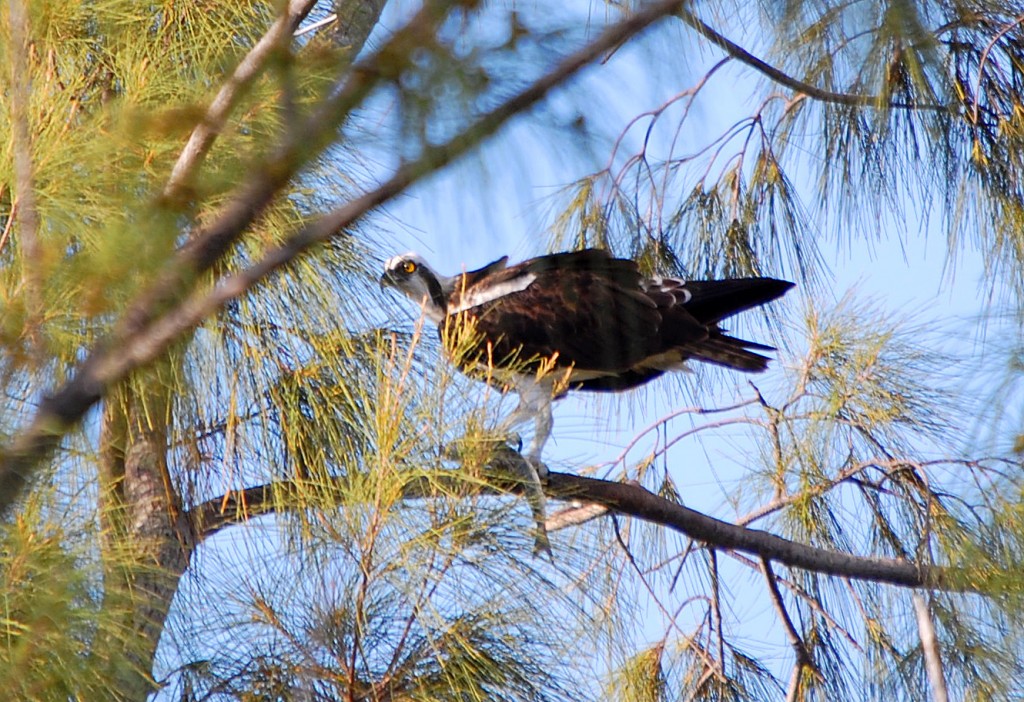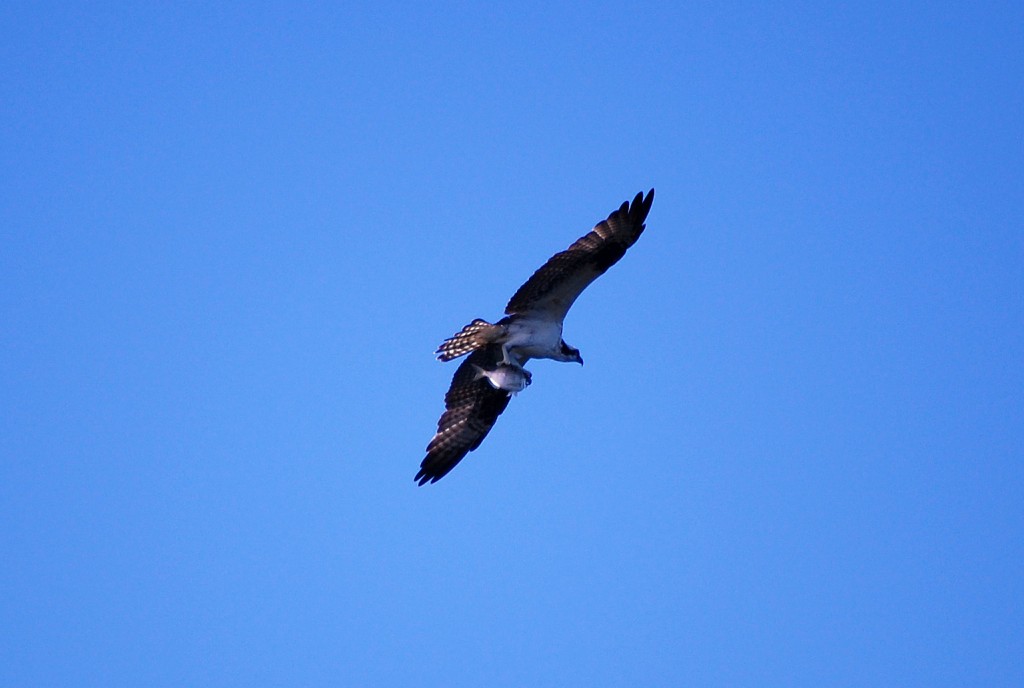Fish Hawks
So, today I'm out on Round Island trying to get some photos of an Osprey. I've been observing them for a couple of days now. They begin to feed around 9 a.m., and usually are done in about an hour. It takes them about 30-45 minutes to catch a fish, and when they do, they fly to a tree branch to eat it. It is interesting to watch them hover over their prey. When they spot a fish, they fold their wings and dive straight down and hit the water feet first in a big splash. I notice they seem to be successful about 50% of the time. Obviously, they have to catch a fish just the right size, too big and they wouldn't be able to fly. When they come out of the water, they hold their catch in one or both talons. They circle around for awhile looking for just the right tree or branch to land on. They have to land one-footed and hold their catch in the other foot. But they're pretty good at it, and I haven't seen one miss its landing yet.
The photo on the left was taken from under the tree the Osprey was perched on. It had just landed and had begun to take bites from around the head of the fish. Every time it would take a bite, the fish would flop and momentarily unbalance the precarious one-taloned grip.
Notice how the eyes are set in the head. Almost owl-like. I assume this helps with its depth perception and also to be able to see straight ahead as it dives for its prey. So when this bird looks at you, its head is pointed straight at you, as opposed to cocked to one side, like a mockingbird. He was none too happy when he spotted me, even though he was a good 75 feet away, high up in a pine tree. I was obviously interrupting his breakfast, and moments later, he took off to look for another tree.
The next photo was taken prior to the one above from an observation tower located near the tree where this Osprey alighted. Click on the photo for full size.
And, finally, the last photo (on the right) is of an Osprey in flight with its catch. These birds are really cool to watch. They have a large wing span (I guess to be able to lift their prey's added weight). Thus, when not loaded with prey, their flight is glider-like. They do more soaring than flapping of their wings. When hunting, they soar high above the water until they locate a school of fish; then they drop down and hover over their prey until spotting a suitable fish, when they will fold their wings and dive. Sometimes they will swoop out of the dive at the last minute, inches above the water--I guess when they realize they have to abort. I notice that hawks use a similar hovering technique when hunting small rodents over land. And Ospreys are known as "fish hawks," and, by the way, are a protected species here in Florida.
I am going to try to get out on my kayak soon to see if I can photograph one hitting the water while catching a fish. Stay tuned.


